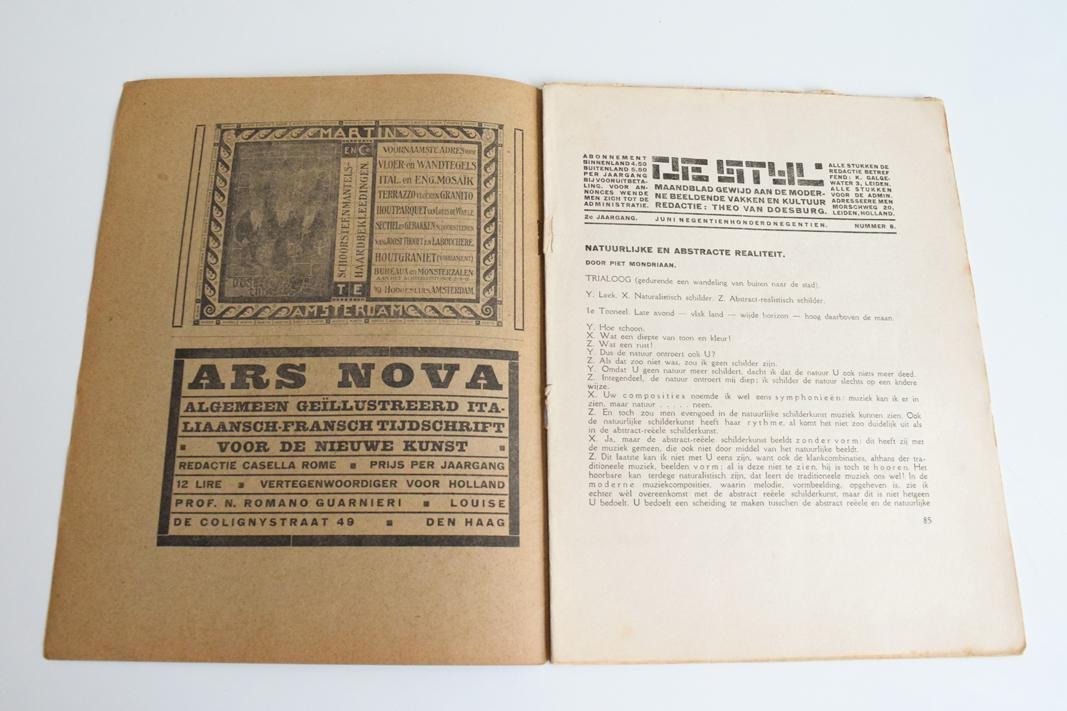
Important De Stijl Magazine Cover by Vilmos Huszar, 1919 for sale at Pamono
A term describing the abstraction pioneered by the Dutch journal De Stijl (The Style), founded in 1917 by the painter and architect Theo van Doesburg. This international group of artists working in all mediums gave up naturalistic representation in favor of a stripped-down style mostly made up of straight lines, rectangular planes, and primary colors. In response to the devastation caused by.

Vilmos Huszar Grafik design, Logo design inspiration, Modern graphic design
Lizzy Goodman Enlarge this image The White Stripes live, circa 2000. Courtesy of Third Man Records Twenty years ago, life was hard for a rock fan. On the radio, corporate pop and slick R&B reigned..

Pin by Wrenegade Grace on Çizimler Graphic design inspiration, De stijl, Magazine layout design
Huszár also co-founded the De Stijl magazine and designed the cover for the first issue. In 1918 he designed interior colour schemes for the bedroom of Bruynzeel house in Voorburg. From 1920 to 1921 he collaborated with Piet Zwart on furniture designs. He left the De Stijl group in 1923.

Une des premières couvertures de la revue " De Stijl " Vilmos Huszár, 1916 "De Stijl" fut d
The original cover of the journal De Stijl, published in 1917 and designed by Vilmos Huszár. Photo: Bridgeman Images The essential components of De Stijl's art aesthetic were relatively simple. There were to be no depictions of objects, just simple rectangles in primary colours and black and white.
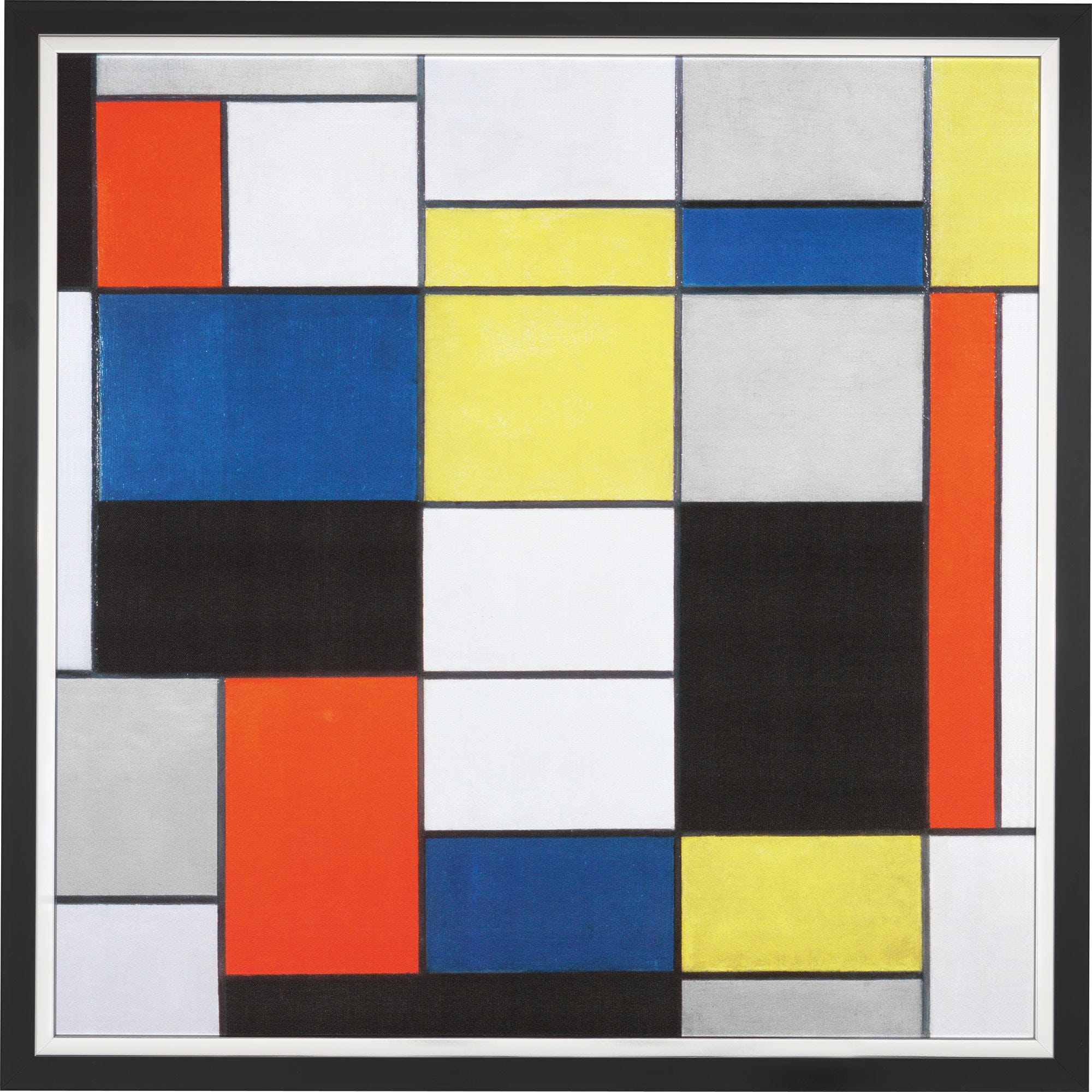
100 years of De Stijl. We speak of concrete and not abstract… by Lucy Laughland FGD1 The
In doing so, Van Doesburg launched the group's manifesto journal, De Stijl, which would endure until his death in 1931, a year that marked an end to the De Stijl adventure. De Stijl magazine, 1st cover with reproduction of a work by Theo van Doesburg: Composition 17 (1917), September 1921 .
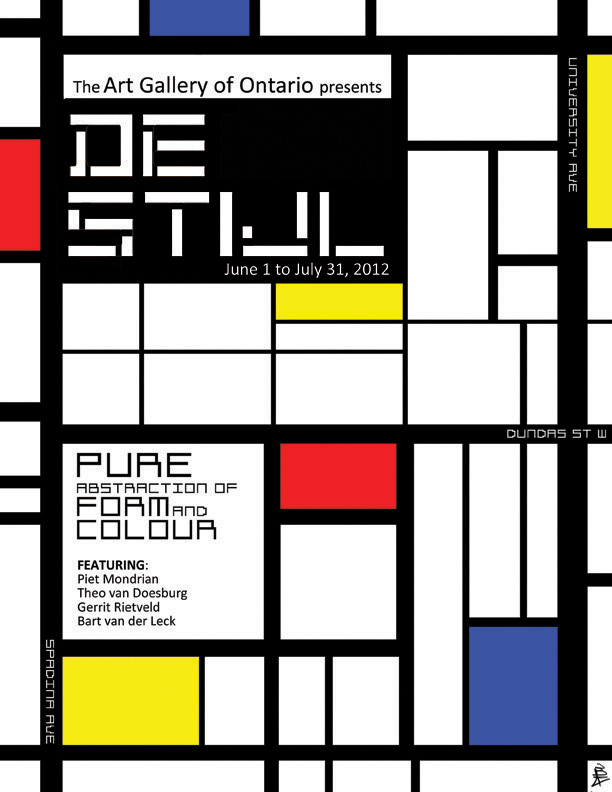
Higher National Diploma in 3D Design Year 1 Final Essay Alessandro Mendini & Gerrit Rietveld
Started: 1917 Ended: 1944 "Neo-Plasticism creates harmony through two extremes: the universal and the individual. The former by revelation, the latter by deduction. Art gives visible expression to the evolution of life: the evolution of spirit and - in the reverse direction - that of matter." Summary of Neo-Plasticism

Subir
The Netherlands-based De Stijl movement embraced an abstract, pared-down aesthetic centered in basic visual elements such as geometric forms and primary colors. Partly a reaction against the decorative excesses of Art Deco, the reduced quality of De Stijl art was envisioned by its creators as a universal visual language appropriate to the.

Marking the 100th Anniversary of the movement ‘De Stijl’ ('The Style') • Inkygoodness
El Lissitzky Cover design for De Stijl, 1922 Lithograph on paper 8 1/4 × 10 1/2 in | 21 × 26.7 cm Bidding closed Get notifications for similar works Create Alert Wright: The Boyd Collection: Word + Image (November 2018) Want to sell a work by this artist? Sell with Artsy Artist Series Portraits of Artists and Sculptors 113 available

de stijl movement brochure Porsha Marais
Here's an inspiring selection of De Stijl and De Stijl-inspired designs: Covers of De Stijl journal, issues 1 and 2. An homage poster for Inception, inspired by the De Stijl cover design. Theo van Doesburg and Richard Kegler's De Stijl typeface, rooted in the geometric concept of the square. Amsterdam's Stedelijk Museum's new logo is.
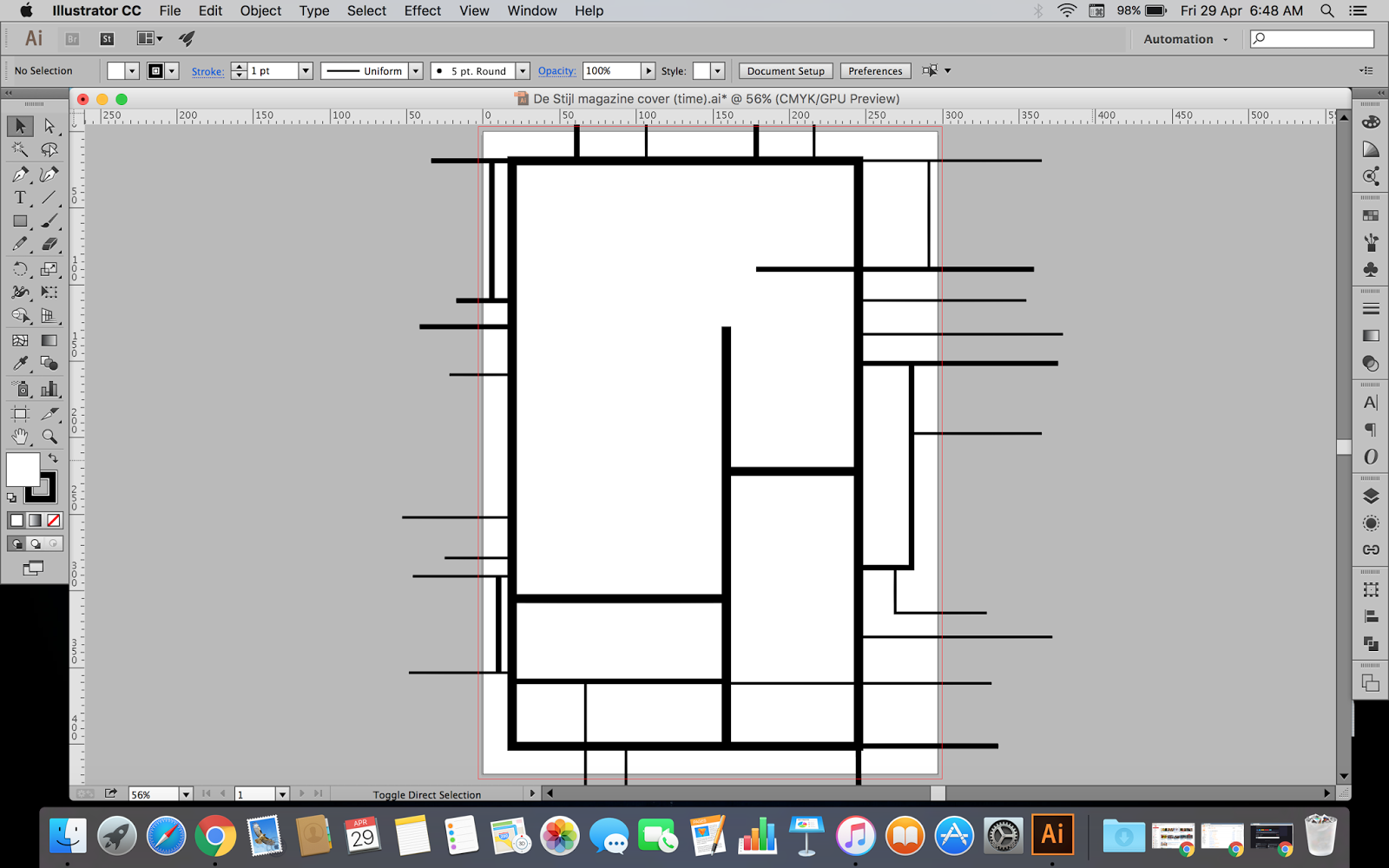
JJ's Blog De stijl magazine cover
Huszár also co-founded the De Stijl magazine and designed the cover for the first issue. In 1918 he designed interior colour schemes for the bedroom of Bruynzeel house in Voorburg. From 1920 to 1921 he collaborated with Piet Zwart on furniture designs. He left the De Stijl group in 1923.
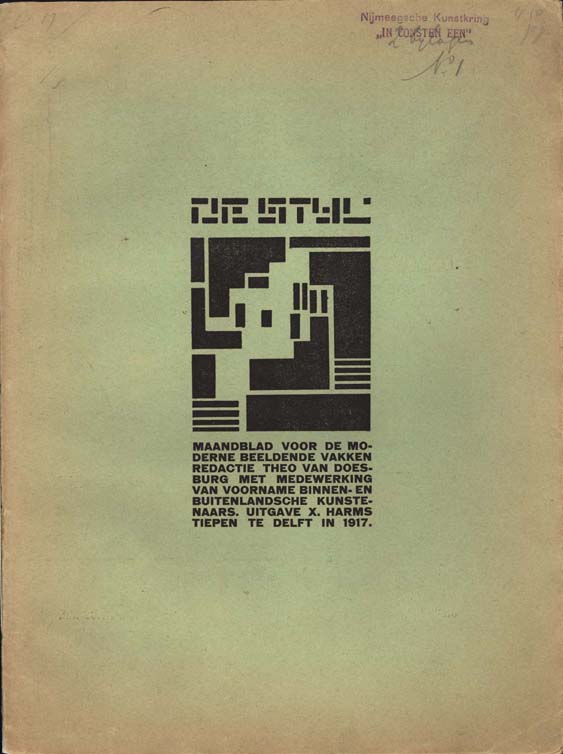
De Stijl vol. 1 no. 1
The name De Stijl is used to refer to a body of work made from 1917 to the mid 20th century. In 2017 museums, galleries and outdoor spaces in the Netherlands have been marking this 100 year.
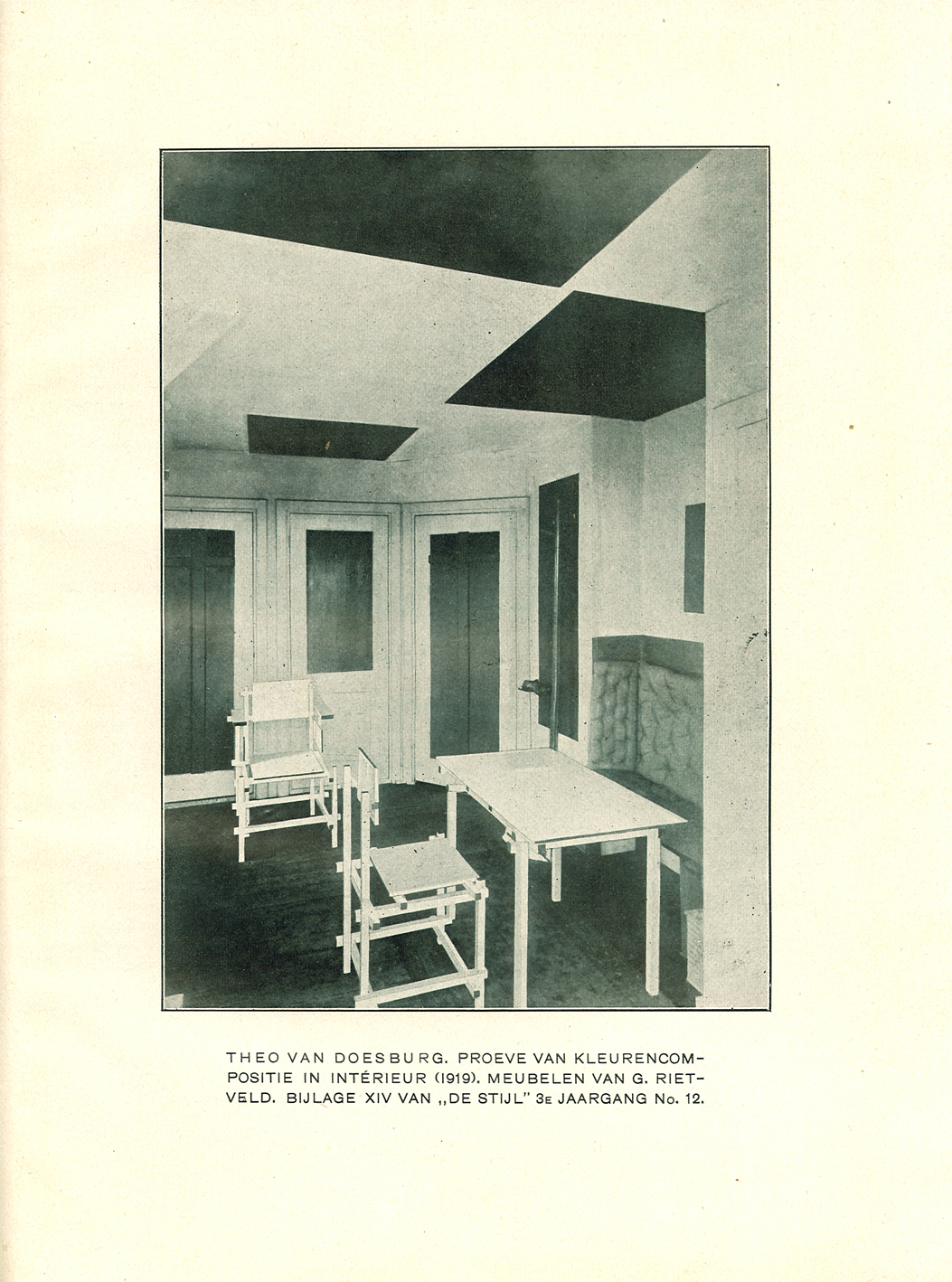
» De Stijl, Part III The Total De Stijl Environment
Key period: 1917 - 1931 Key regions: The Netherlands Key words: geometric forms, primary colours, form and function, Neo-plasticism, spirituality, return to order Key artists: Piet Mondrian, Theo van Doesburg, Bart van der Leck, Vantongerloo, Vordemberge-Gildewart, Gerrit Rietveld, JJP Oud Theo van Doesburg, Arithmetic Composition, 1929-1930.

ClippedOnIssuu from Revista de stijl Piet Mondrian, Theo Van Doesburg, Bauhaus, Movies, Movie
Theo van Doesburg Dutch Painter, Designer, and Architect Born: August 30, 1883 - Utrecht, Netherlands Died: March 7, 1931 - Davos, Switzerland Movements and Styles: De Stijl , Neo-Plasticism , Concrete Art , Bauhaus "What I am trying to realize is a universal form which entirely corresponds to my spiritual vision" Summary of Theo van Doesburg
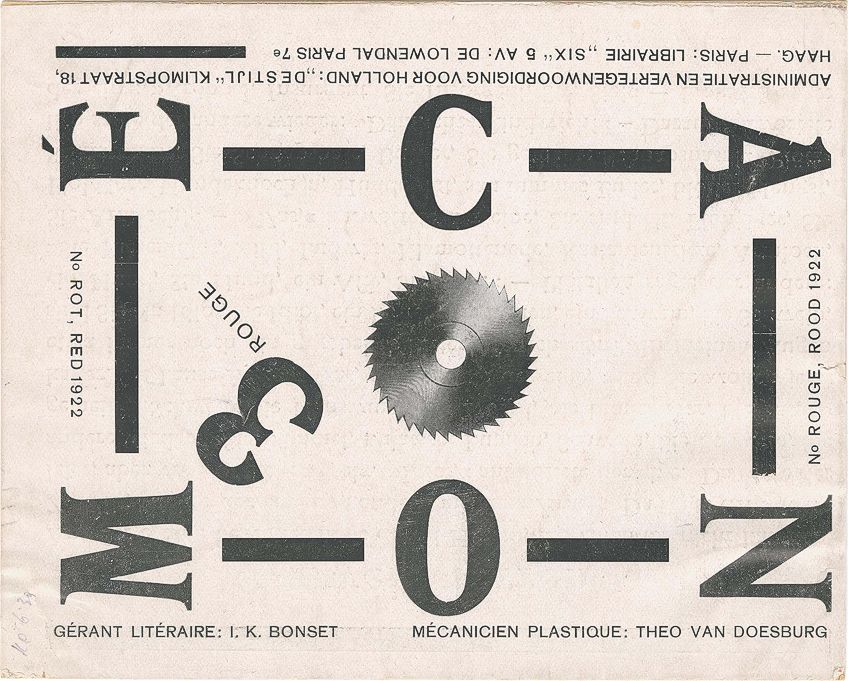
De Stijl Art Exploring the Geometric Art of the De Stijl Movement
Fig. 1 Cover of the first issue of De Stijl: maandblad voor de beeldende vakken / De Stijl: Monthly magazine for the visual arts, with vignette, designed by Vilmos Huszár, 1917 Disputing the notion that a coherent Stijl group had ever existed, Vantongerloo noted that many of the artists associated with the journal had not actually met one another.

De Stijl Catalogue de l'exposition De stijl, Mondrian art, Art movement
De Stijl ( / də ˈstaɪl /; Dutch pronunciation: [də ˈstɛil], Dutch for "The Style"), also known as Neoplasticism, was a Dutch art movement founded in 1917 in Leiden. De Stijl consisted of artists and architects. [1] In a more narrow sense, the term De Stijl is used to refer to a body of work from 1917 to 1931 founded in the Netherlands.

Pin em CDG///Les Avants Gardes//De Stijl
1921, De Stijl Magazine Cover, Mondrian and Van Doesburg The most influential piece of work displaying the sensibility and simpleness of 'De Stijl' was the original Masthead, created by.